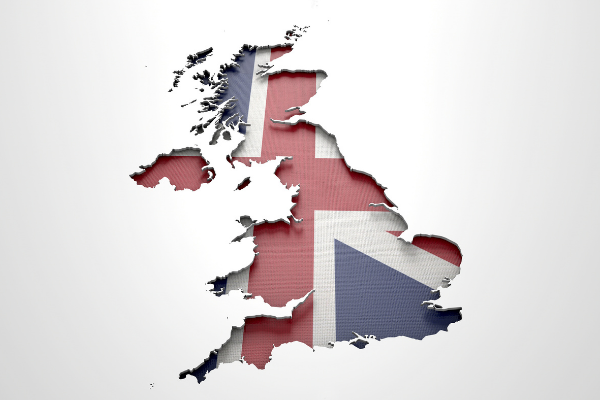BY:
SHARE:

The way HMRC charges excise duty on alcoholic beverages is changing on 1 August 2023. The new rules will apply to all alcoholic beverages, both UK produced and imported goods.
Alcoholic Products
Under the Alcoholic Products (Excise Duty) Regulations (2023), excise (alcohol) duty is payable on products with an alcohol by volume (ABV) of 1.3% or more for any of the following:
- beer
- cider, including perry
- spirits, including spirit based ready-to-drink (RTD) products
- wine, including sparkling and fortified wines
- other fermented products (previously called made-wine) like fruit ciders
Current System
Under the current system, alcoholic products are charged in a complex variety of ways. For example, beers are charged per hectolitre per ABV, ciders and wines are calculated per hectolitre of product only, and spirits are charged per litre of pure alcohol in the product.
New System
Under the new system, all alcoholic products will be charged per litre of pure alcohol in the product. The new rates that apply from 1 August 2023 are contained in the attached table.
This change in the way that alcohol duty is charged, together with the new duty rates that apply from 1 August 2023, will no doubt mean an increase in costs for producers and importers. However, the change will also affect Customs Brokers who currently declare alcohol products to HMRC through the Customs Declaration Service (CDS).
So how will this change affect Customs Brokers?
New Tax Type Codes
As can be seen from the attached table, HMRC is introducing new Tax Type Codes to be used with the new alcohol duty rates from 1 August 2023. These new codes will need to be used from 1 August 2023 on all alcohol product imports.
The CDS Data Elements likely to be affected by the changes are as follows (subject to HMRC confirmation).
| DE 6/17 | National Additional Code | New X series codes to be published? |
|---|---|---|
| DE 6/2 | Supplementary units | Likely to be litres |
| DE 4/3 | Tax Type Code | New codes to be published |
| DE 4/4 | Tax base unit | Likely to be ASV (for the ABV%) |
| DE 4/4 | Tax base value | The percentage ABV of the product |
Here are the new alcohol duty rates from 1 August 2023 (E & OE).
| Alcohol by volume (ABV) | Excise duty rate per litre of alcohol * | Tax Type Code |
|---|---|---|
| * Per litre of alcohol means the alcohol in the product | ||
| Beer | ||
| 0 to 1.2% | £0.00 | 301 |
| 1.3% to 3.4% | £9.27 | 311 |
| 3.5% to 8.4% | £21.01 | 321 |
| 8.5% to 22% | £28.50 | 331 |
| Stronger than 22% | £31.64 | 341 |
| Cider (but not sparkling cider) | ||
| 0 to 1.2% | £0.00 | 301 |
| 1.3% to 3.4% | £9.27 | 312 |
| 3.5% to 8.4% | £9.67 | 322 |
| 8.5% to 22% | £28.50 | 332 |
| Stronger than 22% | £31.64 | 342 |
| Sparkling cider | ||
| 0 to 1.2% | £0.00 | 301 |
| 1.3% to 3.4% | £9.27 | 312 |
| 3.5% to 5.5% | £9.67 | 322 |
| 5.6% to 8.4% | £24.77 | 324 |
| 8.5% to 22% | £28.50 | 332 |
| Stronger than 22% | £31.64 | 342 |
| Spirits or spirit based products | ||
| 0 to 1.2% | £0.00 | 301 |
| 1.3% to 3.4% | £9.27 | 315 |
| 3.5% to 8.4% | £24.77 | 325 |
| 8.5% to 22% | £28.50 | 335 |
** Note that there is a transitional arrangement for wine between 11.5% and 14.5% ABV. These wines will be treated as if the ABV is 12.5% ABV for the purposes of calculating the charge to alcohol duty. This arrangement will end on 31 January 2025.
In addition to the above, HMRC is replacing the Small Brewery Relief (SBR) scheme with a new scheme called Small Producer Relief (SPR). HMRC is also introducing a Draught Relief (DR) scheme.
Small Producer Relief (SPR)
The Small Producer Relief scheme is aimed at small producers (under 4,500 hectolitres of pure alcohol) of all alcoholic products under 8.5% ABV and not just beer.
Details of the Small Producer Relief scheme can be accessed here:
Check if you’re eligible for Small Producer Relief on Alcohol Duty - GOV.UK (www.gov.uk)
How your business set up can affect your eligibility for Small Producer Relief - GOV.UK (www.gov.uk)
Draught Relief (DR)
The Draught Relief scheme covers products under 8.5% ABV that are to be sold on draught. To qualify, the products must be packaged in containers of at least 20 litres and either connect to a dispensing system or incorporate one.
Details of the new Draught Relief scheme can be accessed here:
Check if you can pay less Alcohol Duty on draught products - GOV.UK (www.gov.uk)
General guidance from HMRC on the new alcohol duty scheme can be accessed here:
Work out how much Alcohol Duty you need to pay - GOV.UK (www.gov.uk)
Alcohol Duty from 1 August 2023 – Wine Easement Update
For wine with an alcoholic strength between 11.5% and 14.5%, inclusive, imported to Free Circulation and Home Use between 1st August 2023 and 31st January 2025, an easement is in place to facilitate trade readiness.
Imports of wine within these parameters must be declared in Data Element 4/4 under the wine easement as follows:
Measurement unit code EAS
Notional strength of 12.5% abv
In addition to declaring the actual strength of the wine against measurement unit ASV as follows:
| Measurement unit code | Details to be declared |
|---|---|
| ASV | Actual alcoholic strength of the wine between 11.5% and 14.5% |
| EAS | 12.5 |
OneCall™ Email assistance as and when required; A one-call solution for all your import, export and customs enquiries. Export help. Import help. Customs help.
Stay informed about customs and international trade matters by subscribing to our OneCall™ service. This comprehensive offering includes a dedicated email helpline for support, timely practical updates direct to your inbox (Did You Know?), monthly UK Customs & Trade Briefings and access to an interactive members' area with an exclusive community for our subscribers.
International Trade Updates & Spotlight Newsletter
Subscribe to our free information emails covering international trade topics...
MORE INDUSTRY INSIGHTS...









